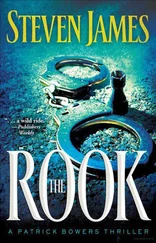James Becker - Echo of the Reich
Здесь есть возможность читать онлайн «James Becker - Echo of the Reich» весь текст электронной книги совершенно бесплатно (целиком полную версию без сокращений). В некоторых случаях можно слушать аудио, скачать через торрент в формате fb2 и присутствует краткое содержание. Жанр: Триллер, на английском языке. Описание произведения, (предисловие) а так же отзывы посетителей доступны на портале библиотеки ЛибКат.
- Название:Echo of the Reich
- Автор:
- Жанр:
- Год:неизвестен
- ISBN:нет данных
- Рейтинг книги:3 / 5. Голосов: 1
-
Избранное:Добавить в избранное
- Отзывы:
-
Ваша оценка:
- 60
- 1
- 2
- 3
- 4
- 5
Echo of the Reich: краткое содержание, описание и аннотация
Предлагаем к чтению аннотацию, описание, краткое содержание или предисловие (зависит от того, что написал сам автор книги «Echo of the Reich»). Если вы не нашли необходимую информацию о книге — напишите в комментариях, мы постараемся отыскать её.
Echo of the Reich — читать онлайн бесплатно полную книгу (весь текст) целиком
Ниже представлен текст книги, разбитый по страницам. Система сохранения места последней прочитанной страницы, позволяет с удобством читать онлайн бесплатно книгу «Echo of the Reich», без необходимости каждый раз заново искать на чём Вы остановились. Поставьте закладку, и сможете в любой момент перейти на страницу, на которой закончили чтение.
Интервал:
Закладка:
“So?”
“So two of the access roads that we’ve just passed aren’t surfaced in asphalt like all the others. They’re built from concrete, and to me they look old.”
Angela snapped her head round and looked back toward the village they’d just driven through.
“You could have given me the short version,” she said. “Which side of the road were they on?”
“The north side, where the railway line is. As far as I could see they were the only two in the area, and I reckon they’re definitely worth a bit of investigation.”
“I agree. We’ll come back here in the morning, and see what we can find in daylight. But we also need to buy some torches and other stuff before we start trying to crowbar our way inside that mountain.”
Angela paused and looked at Bronson for a few seconds.
“Occasionally, Chris,” she said eventually, “you surprise me.”
38
26 July 2012
Finding a hotel in the nearby town of Nowa Ruda didn’t prove to be a problem, and they picked a small establishment tucked away in a side street, where Bronson hoped nobody would spot the stolen plates on the stolen BMW. The following morning they had a large breakfast in the hotel dining room to set them up for the day, then climbed back into the car and headed north, through the suburbs of Drogoslaw, and the completely unpronounceable Zdrojowisko.
Bronson stopped in a garage on the outskirts of Nowa Ruda and topped up the tank of the BMW. The garage’s kiosk was well stocked, and as well as fuel he bought enough packet food and drink to last for two or three days, plus half a dozen flashlights and plenty of spare batteries, and a couple of sets of disposable mechanic’s overalls. Lying on a dusty shelf at the back of the garage shop, he also found a guidebook for the area. It was written in Polish and German, and had been published about fifteen years earlier. He wasn’t sure exactly how much use it would be to them, but he decided to buy it anyway.
When he got back in the car, he passed the book to Angela, who began looking at the text and having a stab at translating some of the German with the aid of a small dictionary she took out of her handbag. After a few minutes she closed the book and leaned back in her seat.
“There’s a map in it but it isn’t a lot of use,” she said. “I don’t think it’s to scale, and there’s very little detail on it, but there is some information about the underground complex. Apparently some of the tunnels are now owned by private individuals, and one or two are even open to the public.”
“I doubt very much if those tunnels are what we’re looking for,” Bronson said.
“True enough. According to the documents I’ve looked at, the entrances to the area where the Bell had been installed were blown up by explosive charges when the complex was abandoned. But it’s a huge complex, covering almost thirty-five square kilometers, and I’ve no doubt that there are dozens or even hundreds of tunnels and chambers in it that are still completely unexplored.”
A few minutes later, Bronson flicked on the turn signal and turned the car off Ludwikowice’s long main street and onto the first of the concrete roads he’d spotted the previous afternoon.
“Here we go then,” he said.
The road was fairly narrow, perhaps eight or nine feet wide, and made up of a series of single concrete elements, each of them about six feet long. The car’s wheels made a rhythmic thumping sound as they crossed the joints between the blocks.
“The surface isn’t in bad condition,” Bronson remarked, “bearing in mind it’s probably been here for over sixty years.”
The road climbed slowly away from the village, the slope gradual as it wound its serpentine way into the hills, and Ludwikowice quickly disappeared from view behind the car. Bronson kept the speed right down, ever conscious of the possibility of hitting a broken block or fallen tree.
Part of the way up the slope, and about six hundred yards from the main road, he drew the car to a stop and pointed.
“I was right,” he said, pointing ahead through the windscreen. “This road was definitely built by the military. That looks to me like an ammunition bunker.”
On one side of the road a spur led to a massive round-topped concrete structure built into the tree-covered hillside. The entrance, obviously originally protected by a heavy steel door, was wide-open, the surrounding concrete discolored and heavily overgrown as nature slowly and inexorably reclaimed the land.
“It’s pretty creepy,” Angela said, staring into the black oblong of the open doorway. “I’m kind of half-expecting to see a Nazi soldier walking out of there any minute.”
They continued a little further up the hill, but it was soon clear to both of them that wherever the Henge they were looking for was located, they were nowhere near it. All they found were low-lying structures made of reinforced concrete and in good general condition, apparently further storage facilities, dug into the ground.
“In the photographs I’ve seen of it,” Angela pointed out, “it looks as if it’s built on a plateau, or at least on a patch of level ground.” She gazed out through the windscreen at the tree-covered slope in front of the car. “There’s no sign of anything like that here, unless the Nazis lopped off the top of the hill.”
Bronson nodded.
“I think you’re right. Let’s head back down to the village and try the other concrete road.”
Ten minutes later, with a distinct sense of deja vu, Bronson slipped the car into first gear and again began climbing up the concrete slope of the hill, this time on the opposite side to the road that had terminated near what he’d supposed were ammunition bunkers. Almost as soon as they left the main road, the trees crowded in, the green canopy almost meeting above the road, shutting out the daylight.
Angela had opened up the guidebook again, and was looking at one particular section of it, which dealt with the German occupation of the area.
“I don’t know if it’s relevant,” she said, “but there’s a passage here which refers to a building erected in this area during the Second World War-if I’m translating the German correctly, that is-but it’s obviously not the Henge. It’s described as the Fabrica, which I think means ‘factory.’ There’s a picture of it as well, and it just looks like that-like a factory, I mean-the walls still standing but the roof collapsed. Maybe it was bombed by the Allies.”
After about one kilometer, they quite suddenly drove out from the forested terrain they’d been following and into a wide valley.
“That’s better,” Bronson said, blinking in the sudden daylight.
Although there was nobody in sight, it was immediately obvious that this area was being worked. There were piles of tree trunks, presumably felled from the forest, and the tire marks of heavy vehicles were clearly visible on the fairly soft ground on one side of the road.
“There’s some logging going on,” Angela said, and then pointed over to one side. “I think we might be on the right track this time,” she added, “no pun intended. That’s a deserted railway line.”
Bronson looked where she was pointing, toward the northern end of the valley, where the railway track disappeared into the tall grass and undergrowth.
“You said there was railway access,” Bronson said. “If we just follow that track, we might find the place at the end of it.”
He steered the car over toward the railway track, which ran more or less down the center of the valley. It obviously hadn’t been used for years, because the rails were caked with rust and had grass and stunted bushes growing between them. Over to their left, a few of the outlying houses of Ludwikowice were visible, standing above a reinforced concrete wall some forty or fifty feet high, which marked that edge of the valley. That supporting wall clearly dated from about the same period as the ammunition bunkers, from the looks of the concrete. The wall also bore signs of additional structures, mainly small rusted patches and protuberances that might originally have been the anchor points for hooks or the like, their purpose unknown.
Читать дальшеИнтервал:
Закладка:
Похожие книги на «Echo of the Reich»
Представляем Вашему вниманию похожие книги на «Echo of the Reich» списком для выбора. Мы отобрали схожую по названию и смыслу литературу в надежде предоставить читателям больше вариантов отыскать новые, интересные, ещё непрочитанные произведения.
Обсуждение, отзывы о книге «Echo of the Reich» и просто собственные мнения читателей. Оставьте ваши комментарии, напишите, что Вы думаете о произведении, его смысле или главных героях. Укажите что конкретно понравилось, а что нет, и почему Вы так считаете.












